Youngo Park
Context-Based Trit-Plane Coding for Progressive Image Compression
Mar 13, 2023Abstract:Trit-plane coding enables deep progressive image compression, but it cannot use autoregressive context models. In this paper, we propose the context-based trit-plane coding (CTC) algorithm to achieve progressive compression more compactly. First, we develop the context-based rate reduction module to estimate trit probabilities of latent elements accurately and thus encode the trit-planes compactly. Second, we develop the context-based distortion reduction module to refine partial latent tensors from the trit-planes and improve the reconstructed image quality. Third, we propose a retraining scheme for the decoder to attain better rate-distortion tradeoffs. Extensive experiments show that CTC outperforms the baseline trit-plane codec significantly in BD-rate on the Kodak lossless dataset, while increasing the time complexity only marginally. Our codes are available at https://github.com/seungminjeon-github/CTC.
Lightweight Image Enhancement Network for Mobile Devices Using Self-Feature Extraction and Dense Modulation
May 02, 2022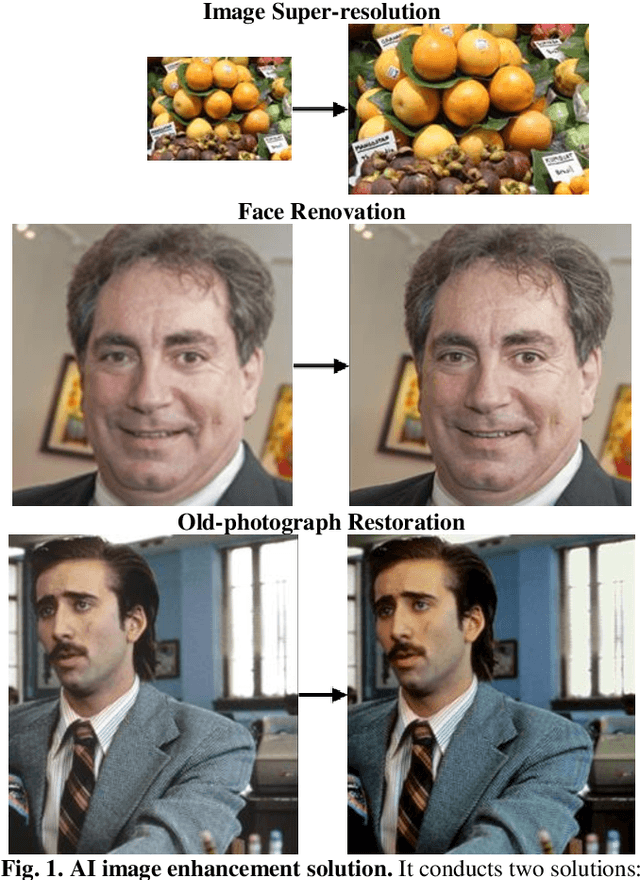
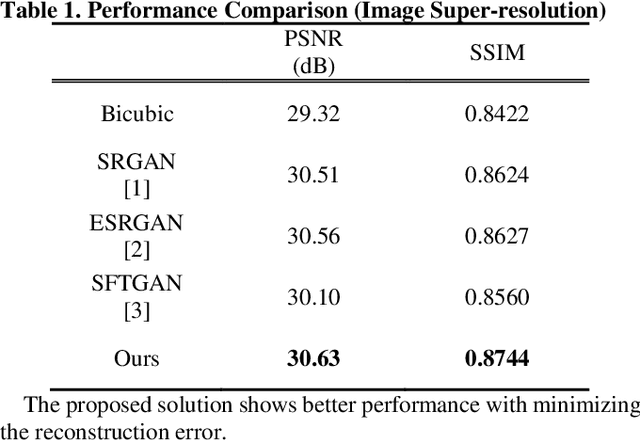
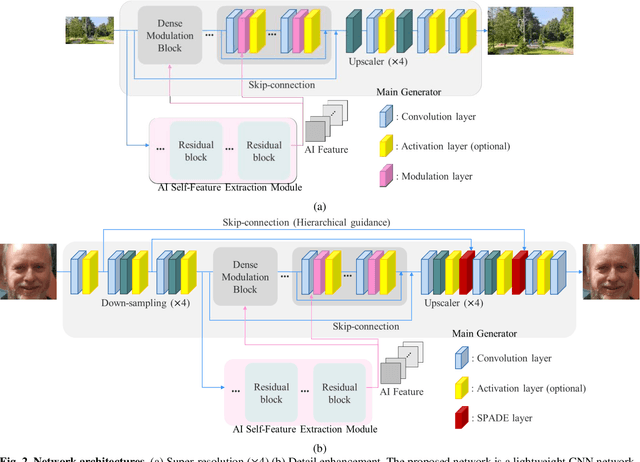
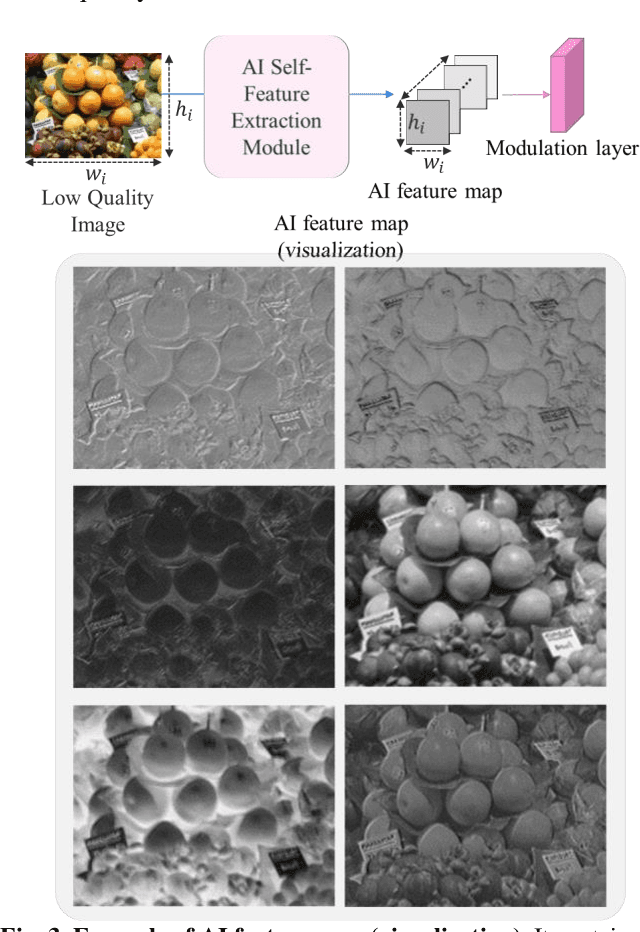
Abstract:Convolutional neural network (CNN) based image enhancement methods such as super-resolution and detail enhancement have achieved remarkable performances. However, amounts of operations including convolution and parameters within the networks cost high computing power and need huge memory resource, which limits the applications with on-device requirements. Lightweight image enhancement network should restore details, texture, and structural information from low-resolution input images while keeping their fidelity. To address these issues, a lightweight image enhancement network is proposed. The proposed network include self-feature extraction module which produces modulation parameters from low-quality image itself, and provides them to modulate the features in the network. Also, dense modulation block is proposed for unit block of the proposed network, which uses dense connections of concatenated features applied in modulation layers. Experimental results demonstrate better performance over existing approaches in terms of both quantitative and qualitative evaluations.
DPICT: Deep Progressive Image Compression Using Trit-Planes
Dec 12, 2021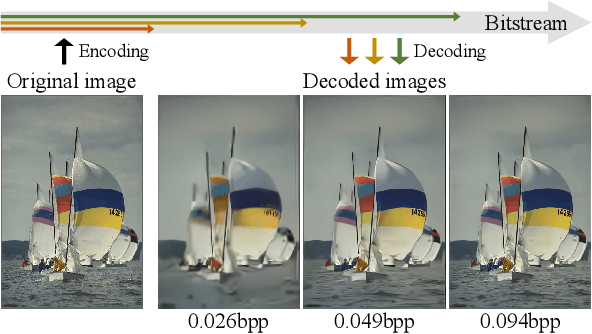
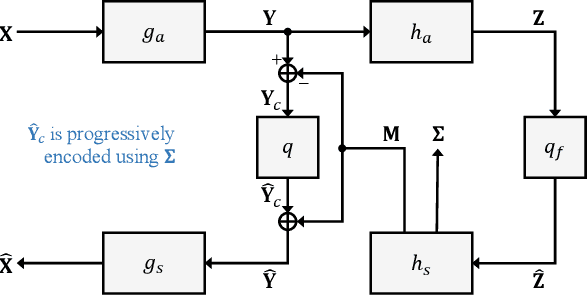
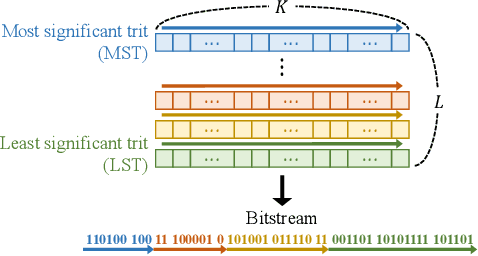
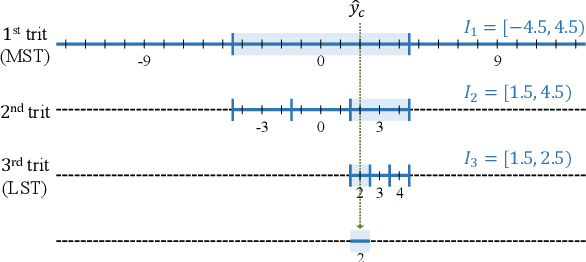
Abstract:We propose the deep progressive image compression using trit-planes (DPICT) algorithm, which is the first learning-based codec supporting fine granular scalability (FGS). First, we transform an image into a latent tensor using an analysis network. Then, we represent the latent tensor in ternary digits (trits) and encode it into a compressed bitstream trit-plane by trit-plane in the decreasing order of significance. Moreover, within each trit-plane, we sort the trits according to their rate-distortion priorities and transmit more important information first. Since the compression network is less optimized for the cases of using fewer trit-planes, we develop a postprocessing network for refining reconstructed images at low rates. Experimental results show that DPICT outperforms conventional progressive codecs significantly, while enabling FGS transmission.
 Add to Chrome
Add to Chrome Add to Firefox
Add to Firefox Add to Edge
Add to Edge